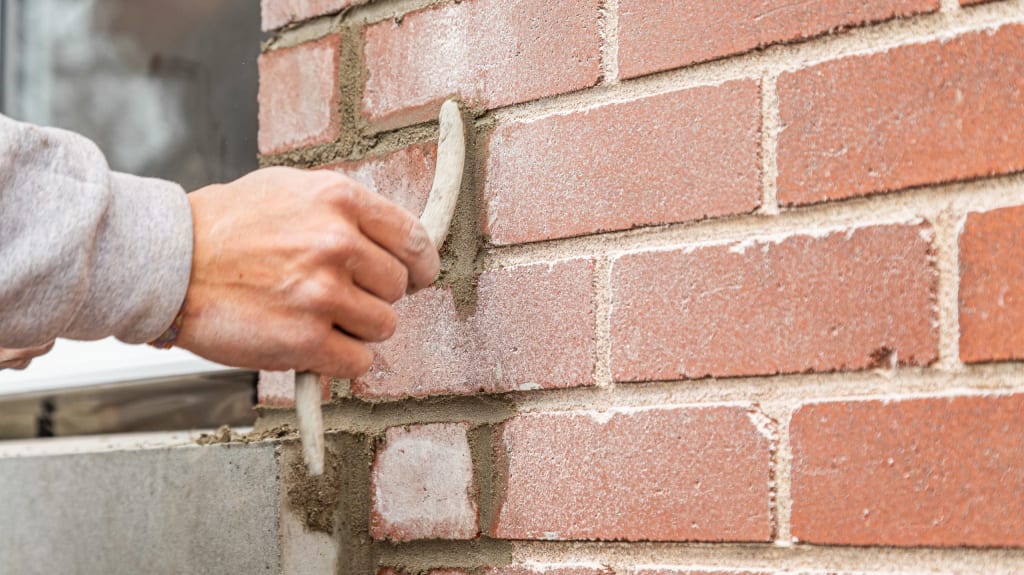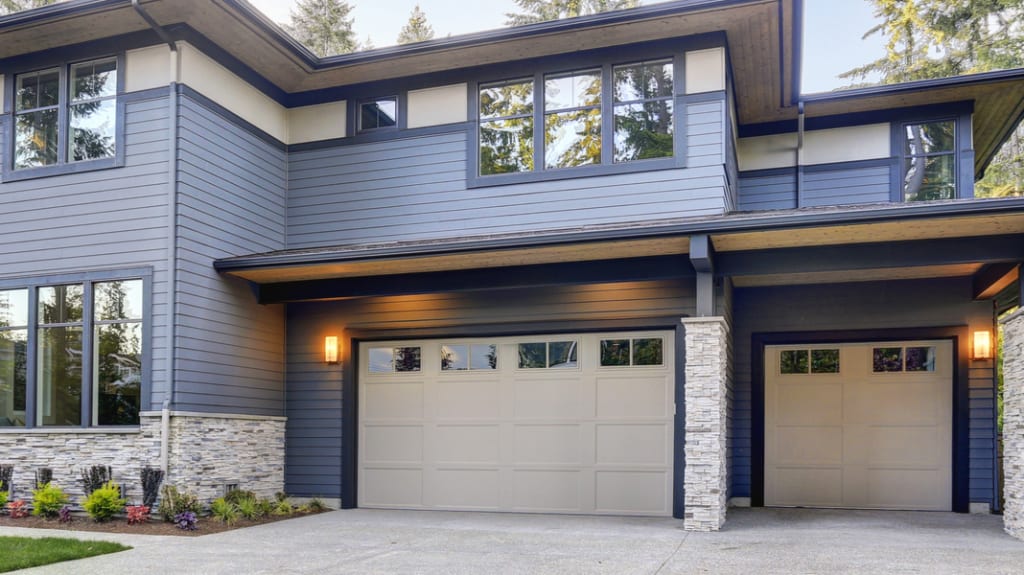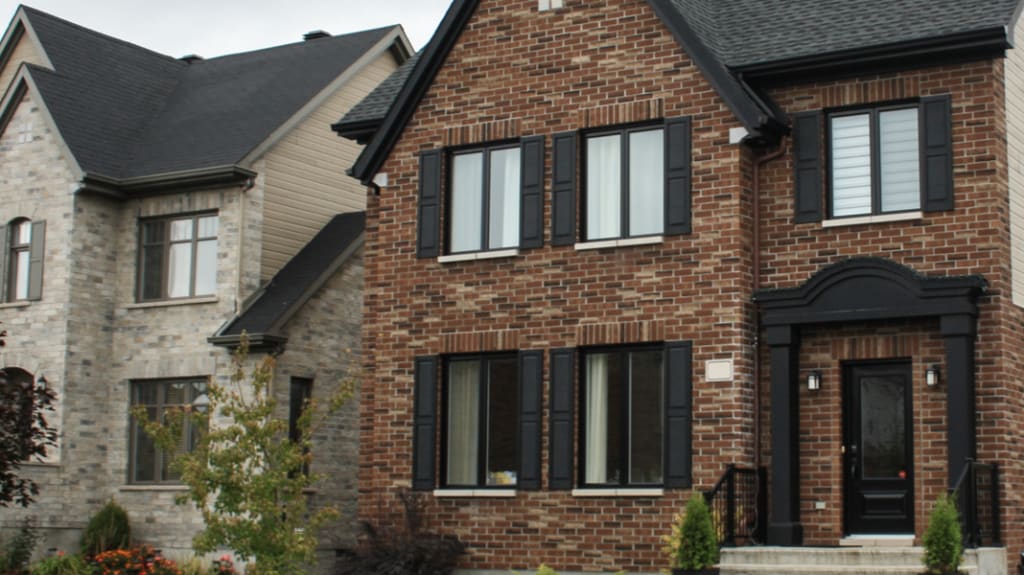If your house, condo, or commercial building has brick or stone walls, you’ll need a mason at some point. And with Canada, where exposure to the elements can significantly damage the brick or stone wall structure over time, this is especially true.
Depending on the severity of the damage and where it is, masonry issues can lead to disastrous consequences for you as a homeowner or business owner: anything from water infiltration to extreme heat loss and foundation problems could make your house or commercial building unsafe. It’s important to know the signs of masonry wear and tear, so our Renovation Advisors have gathered the seven most common ones for you.
Why is the health of masonry important?

Most masonry issues are caused by the soil settling or shrinking over time. A building’s foundation alignment relies heavily on strong pressure from the earth surrounding it. So, if this pressure lessens over time, it’ll put more force on the brick-and-mortar. Since these materials aren’t malleable, they’ll start to bow and break.
In Canada, this is very common because of the freezing/thawing cycle we experience. The thaw causes settling to happen much faster as soil turns to mud in the spring before the summer heat has a chance to dry it out. Because of these conditions, there are many masonry problems that can occur. As the outer layer of your home, sturdy, well-maintained masonry is essential. Cracks, damage or buckling can lead to a host of problems, such as air or water infiltration, damage to interior walls and overall compromising of the structural integrity of your home.
But short of a wall falling down or caving in, how will you know when it’s time to call in a residential or commercial mason? Look for these seven signs of early damage.
1. Bowed brick (bulging brick)
Bowed brick occurs when the bricks in your home’s exterior either jut out or cave in around a certain area. Most of the time, this is caused by moisture that has seeped in behind the masonry. That moisture either (1) warps the concrete and the bricks and forces them to push out or (2) softens the wood or plaster behind the brick, causing the bricks to sink in.
This is a tell-tale sign that something concerning is happening behind your wall and needs to be sorted out.
A mason will remove the affected bricks, assess and fix the damage behind them, replace any water-damaged bricks with new ones and rebuild that section of the outer wall.
2. Brick cracks

As a homeowner, seeing the first signs of brick damage can send your heart rate soaring, even if it’s just one small crack. You might panic and start to wonder: Are cracks in brick normal? Luckily, the answer is yes. But even small, seemingly harmless cracks can cause severe damage later if left untreated.
Vertical cracks in your foundation are the least troublesome. If you see one that’s within 30 degrees of being a straight vertical line, don’t worry–your wall won’t collapse. This type of crack is very normal and occurs as the structure expands and contracts throughout the seasons. Unfortunately, vertical cracks do let water in during heavy rain, which can lead to bulging brick or damage to the inner wall if left untreated.
Now you may be wondering whether cracked bricks are a problem when they’re horizontal. Yes. Horizontal cracks are more concerning than vertical cracking as they can easily lead to bowing and eventually to the complete collapse of an entire wall. So what causes bricks to crack in the first place and can cracked bricks be repaired? The main causes of brick cracks include:
Moisture damage has caused bricks to expand and contract.
The foundation of your home has shifted, often due to extreme weather conditions.
You don’t need to learn how to fix brick wall cracks all on your own. A mason can fix this issue rather easily by filling the crack with urethane or epoxy and, if necessary, installing an expansion joint to take some load off the corner. This type of work is inexpensive and well worth the cost, especially since it’ll prevent more serious issues down the line.
If you’re unsure when to worry about cracks in brick, it is always best to call a professional who can properly assess the damage and let you know if immediate action should be taken.
3. Compacted bricks

This issue is easy to spot–compacted bricks have lost their original shape and can appear bowed or cracked. They leave holes in the wall, allowing water to get through and will compromise adjacent bricks over time. One by one, they’ll all start to fall apart.
A mason will replace the affected brickwork and may recommend that you have someone underpin your foundation with push piers. It’ll provide extra support to your wall and help prevent this issue from recurring.

Thinking of renovating?
4. Spalling bricks
Before learning about brick spalling causes, you first need to understand shelf angles. A shelf angle is a long L-shaped metal piece that gets installed behind a row of bricks on a wall. It splits the weight of the bricks between the ground and the house. Essentially, the house is bearing everything above the shelf angle because those bricks are sitting on it.
Spalling is when the surface of the brick starts to chip or peel. It’s caused by a corroded shelf angle. In short, if the shelf angle is compromised, it’ll no longer divide the weight of the brickwork between the ground and the house. If you have old masonry and/or poor soil surrounding your home, this could end very badly.
A mason will examine the shelf angle for corrosion. If it’s not a huge problem, they will replace the spalled bricks. However, if the shelf angle is significantly corroded, it will have to be replaced. This is a big and expensive job.
It’s understandable there may be some hesitation when faced with a hefty renovation project. You may start asking yourself: Are spalling bricks dangerous? Do I really need to do this right now? And the answer is yes. Spalling bricks are more than a cosmetic issue and should be dealt with promptly and professionally. If left unattended, spalling bricks can lead to:
Some form of water damage
Potential mould, which could result in health issues
Damage to surrounding bricks
Severe structural damage to your home
How to stop brick spalling before it occurs
Regular maintenance is the best way to prevent a handful of frequent masonry issues, including spalling bricks. Ensuring your home has proper water drainage and keeping sprawling vines in check can also help.
5. Efflorescence on bricks

Efflorescence is the presence of soluble salts rising through concrete, coming out the pores and presenting as stains. It’s extremely common because its causes are natural: low temperatures, moist conditions, condensation, rain and dew.
Efflorescence is quite common in concrete as this material has one of the highest concentrations of soluble salts–but what about masonry? Does efflorescence damage brick as well? Yes, it certainly can. Although clay brick and brick with lower levels of concrete may be less susceptible to these chalky white stains, brick efflorescence causes are largely the same as concrete. So, if you see signs of efflorescence on brick, understand that it’s likely a minor issue that can be solved. Early-stage efflorescence can be treated with a thorough pressure wash and do take the time to do it. If you leave it for too long, the stain will transform into impervious-to-pressure-washing calcium carbonate. That’s when you’d have to call in a mason with special chemicals, including muriatic acid, which can be quite dangerous.
6. Deteriorated mortar

This is exactly what it sounds like: the mortar between your bricks starts to buckle and/or disintegrate. With no healthy buffer between bricks, they start to loosen up and rub against each other, causing damage and warping, which leads to very high repair costs that could be avoided by calling in a mason. Loose brick or stone walls can also become dangerous.
Now let’s talk about what causes mortar to deteriorate in the first place. There are several contributing factors including concentration of water inside the mortar, extreme cold weather or a pre-existing structural issue with your home’s foundation. Many older buildings suffer from deteriorated mortar because they lack adequate expansion joints.
Called in time, masons can simply replace or reinforce the mortar, repointing or tuckpointing the mortar (cutting out old mortar to a uniform depth and placing new mortar in the joint), which is simpler, faster and cheaper than rebuilding the walls.
7. Bricks water damage
When it comes to brick walls, water is one of the main adversaries of this highly porous material. Brick wall water damage is common and can lead to a slew of brick damage types including everything from spalling to cracked and broken brick. The best ways to protect your brickwork from water damage are:
Ensure bricks are installed properly by a professional mason.
Keep up with regular brick maintenance.
However, extreme conditions can still lead to water damage over time, even if all of these steps are taken. And weather is not always the culprit either. Other ways water can seep behind your brick include:
Pressure washing can cause both masonry problems and solutions. Be careful not to wash with too much pressure as this can cause damage to bricks, allowing excess moisture in.
Soil from your garden or landscaping is sitting too high up on the walls.
Inadequate or damaged water drainage (so remember to always keep your gutters clear).
Mortar has been poorly mixed and can lead to gaps where water easily builds up.
How to get honest quotes from the right masons?
We understand the difficulties that come with finding a reliable and high-quality mason for your project, so let us take away that stress! Our Renovation Advisors can invite up to three verified masons to submit quotes for your renovation and help you decide which one brings the most value to you. So don’t wait! Call us today at 1-877-736-6360 or fill out this form to get started in just a few simple steps.
Find a mason



